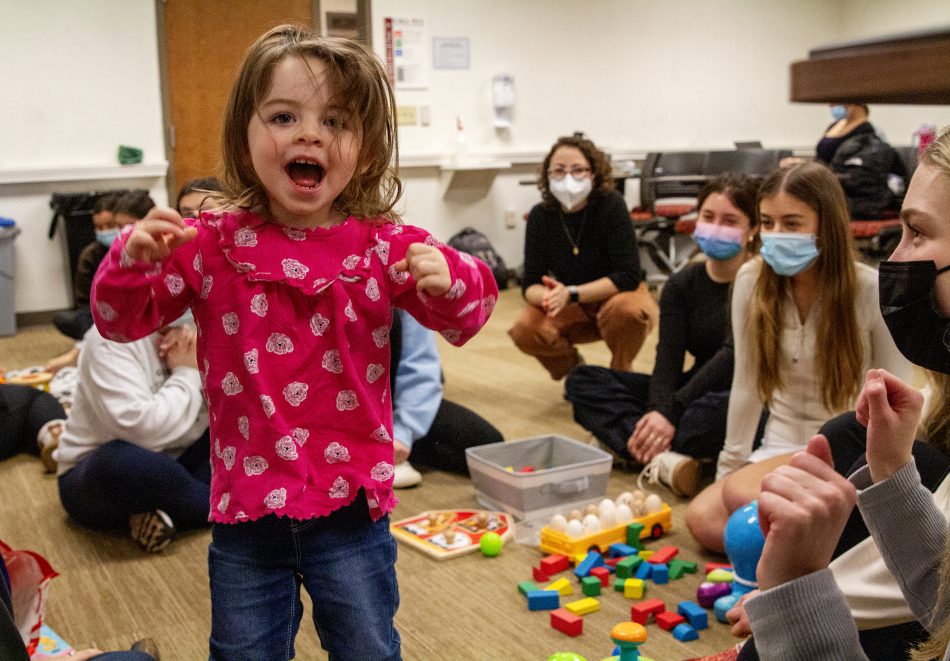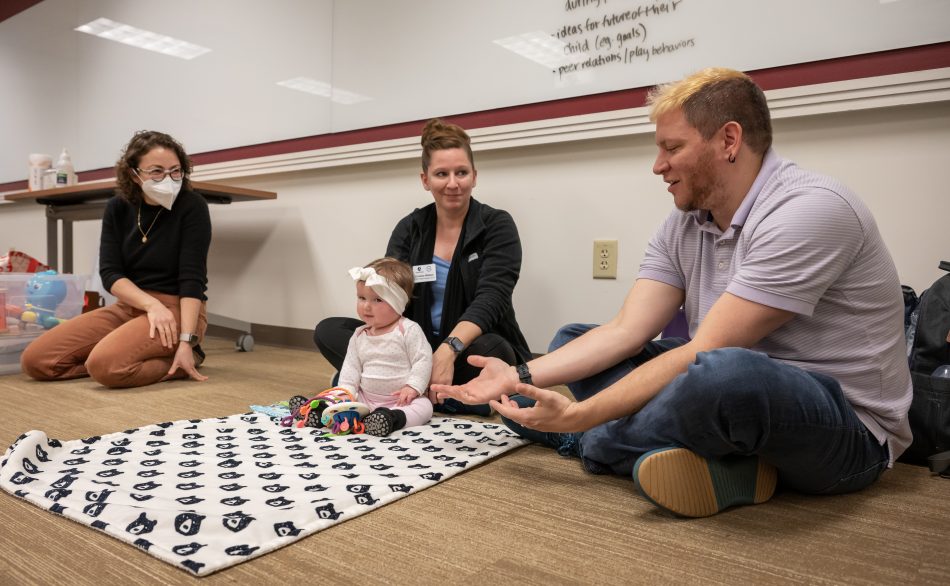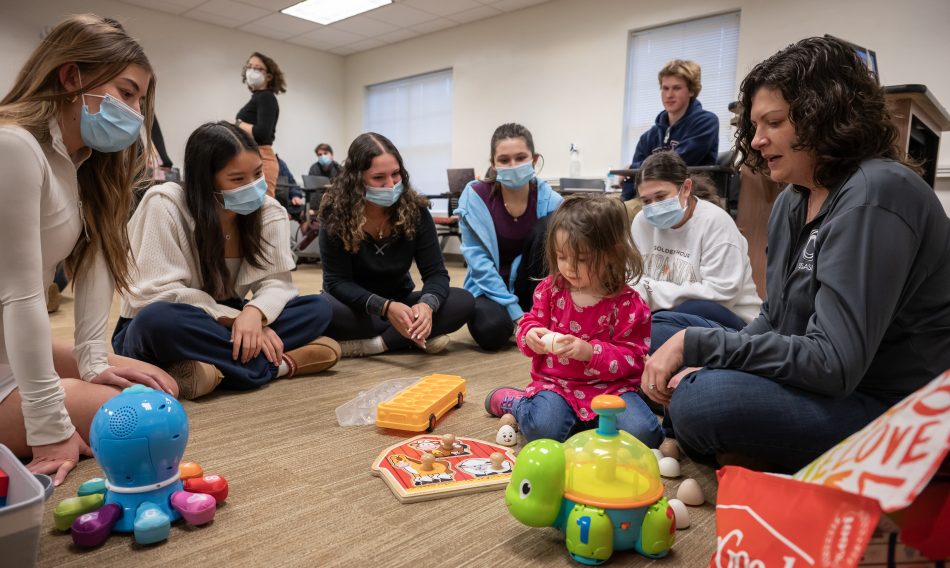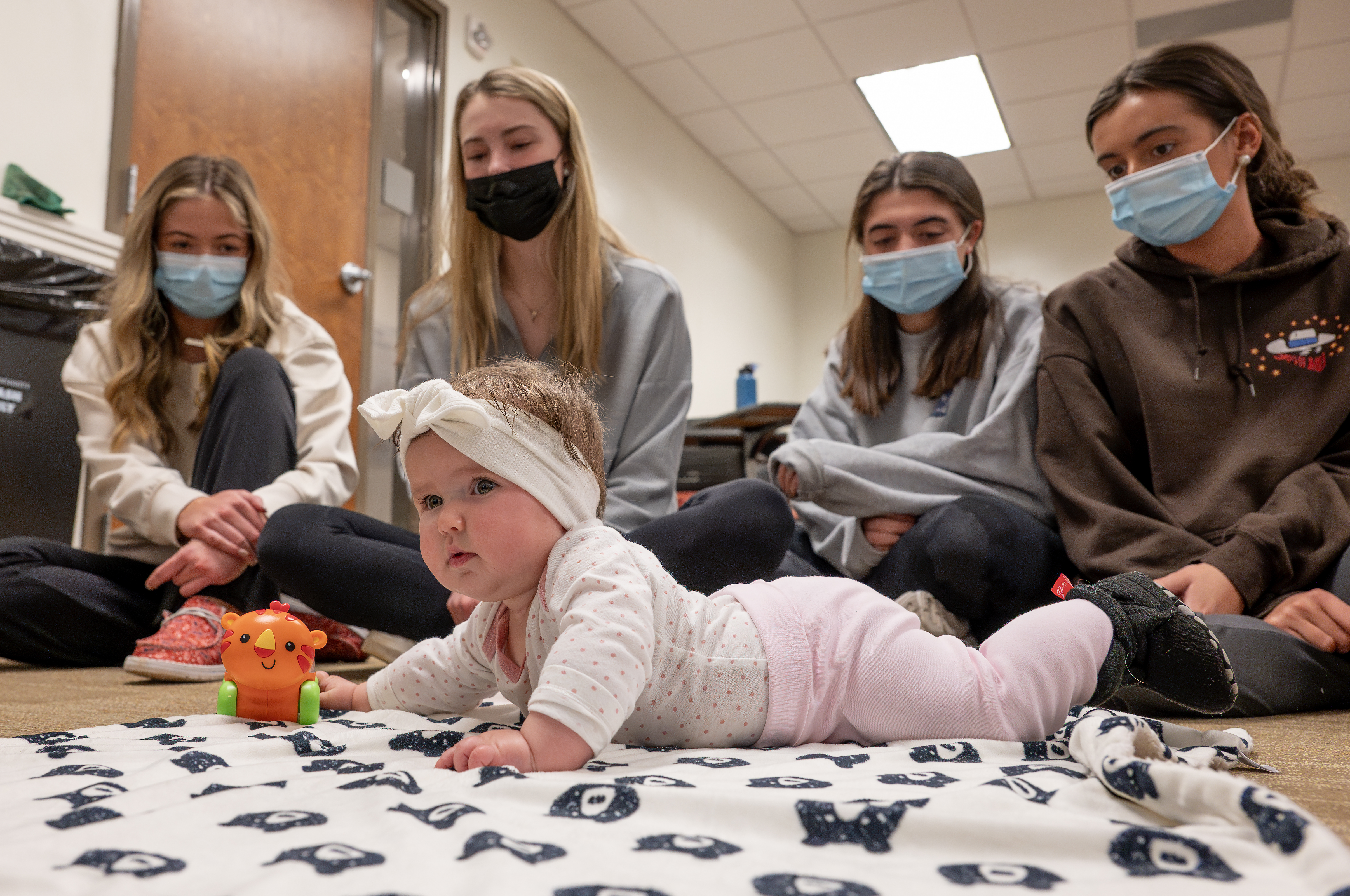Elon faculty and staff brought children to Associate Professor of Psychology Sabrina Thurman’s PSY 2110 Early Childhood Development course to cap Winter Term.
“Do you want to say hello?”
Faced with a classroom full of onlookers, Eva Kennedy, 2, shook her head, turned and buried her face in her mother’s lap. Associate Professor of Entrepreneurship Elena Kennedy leaned in and gently patted her daughter’s head and whispered softly into her ear.
Encouraged, Eva noticed a colorful toy nearby and soon was busily matching shapes and colors as a clutch of students in Associate Professor of Psychology Sabrina Thurman’s PSY 2110 Early Childhood Development course watched carefully. They peppered Elena Kennedy with questions: What is she learning? What are her play habits? What does she enjoy? How does she interact with others?

Within a few minutes, Eva was jumping and dancing to a favorite song about bunnies. That kind of initial shyness with strangers before quickly warming up to them was something students expected from a toddler, based on studies in the course.
Across the room, 5-month-old Parker Wittstein — daughter of Associate Professor of Exercise Science Matt Wittstein and VISTA Manager Christina Wittstein — rolled busily on the floor, playing with rattles and crinkly toys, quickly making sure each one found its way to her mouth. Among other topics, the Wittsteins laughingly described the day Parker discovered her tongue and all the fun ways she could wiggle and move it.
Thurman invites parents and young children to visit with students in the course each time she teaches it.
“It brings the textbook and the concepts and theories that we’ve been talking about to life,” Thurman said. “Whenever they see a baby rolling in front of them or a child interacting with toys and they’re able to participate, it helps them understand the concepts so much more and also personalize it.”

Students reflected on the interesting facts they learned in the Winter Term course — the types and effects of various parenting styles, how societal gender norms are instilled at early ages, and that babies in-utero carry their mother’s trauma — and the value of watching course concepts play out in real time.
Ella McGlynn ’26, a psychology major from Syracuse, New York, paid attention to the contrast in ages and stages of development between Eva and Parker.
“Comparing their ages is a big thing for me,” McGlynn said. “I think temperament and attachment styles is really fascinating because you get to watch the first elements of personality develop in babies from their first moments. Learning how a child figures out their different body parts and aspects of the world and the environment around them is really cool to learn about.”
Diana Luther ’26, a sociology and psychology double major from Raleigh, North Carolina, felt the last-day-of-class activity brought home crucial aspects of the course.

“We brainstormed questions we could ask parents, whether it be about temperament, motor development, emotional development, social development,” said Diana Luther ’26, a sociology and psychology double major from Raleigh. “Comparing the two different age groups, we have a 5-month-old and a 2-year-old, and they’re vastly different in what they can do and the development they’ve experienced. This was an opportunity to apply what we’ve learned over J-term.”
This year’s infant and toddler visit was supported by a Winter Term Enhancement Grant from the Center for the Advancement of Teaching and Learning.



